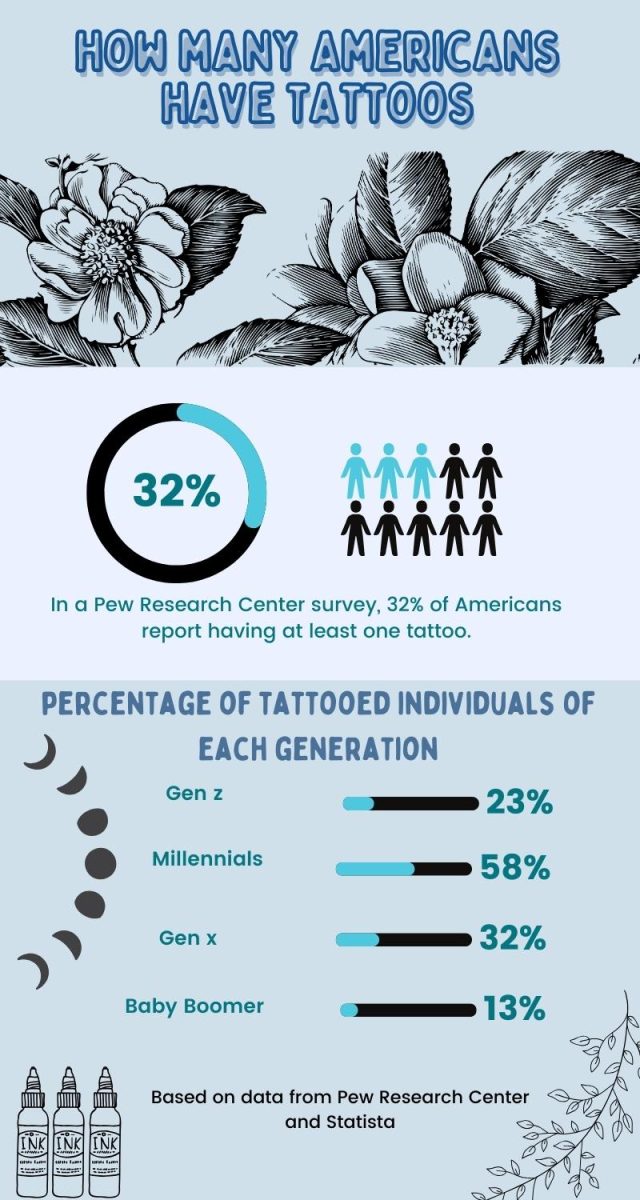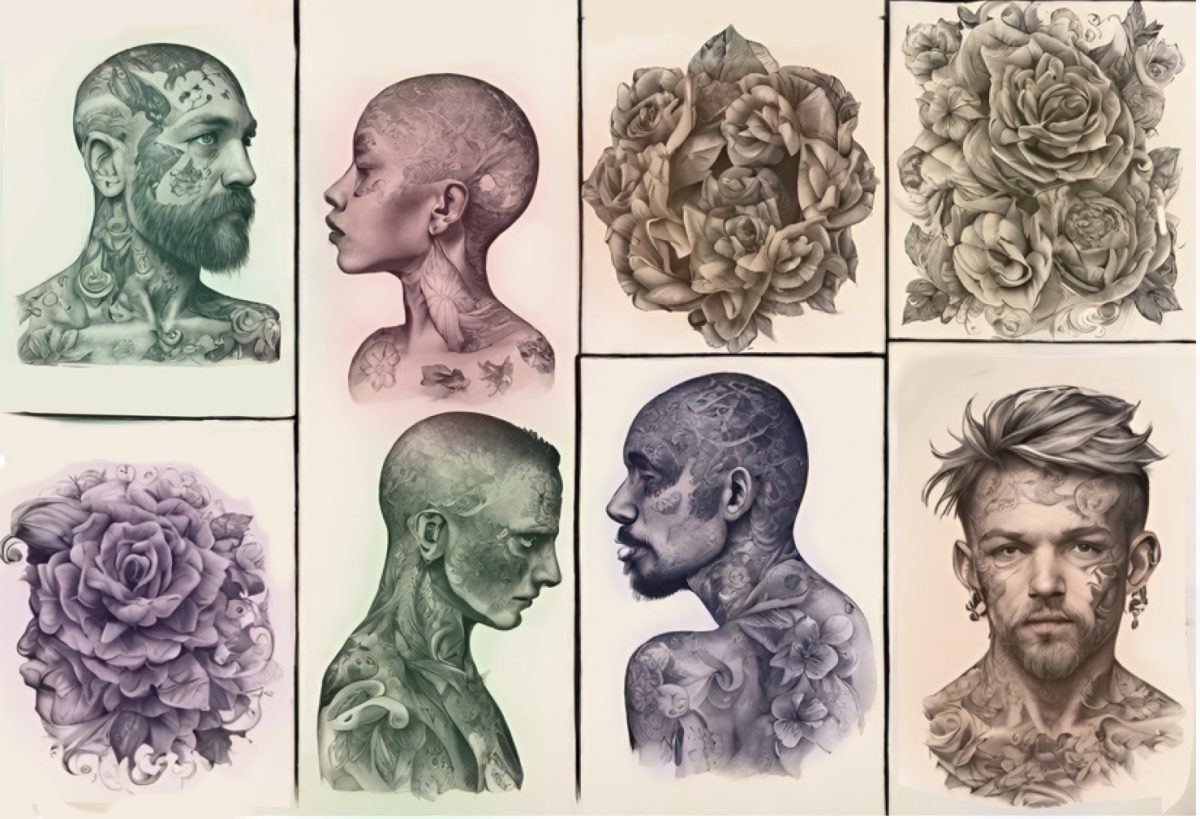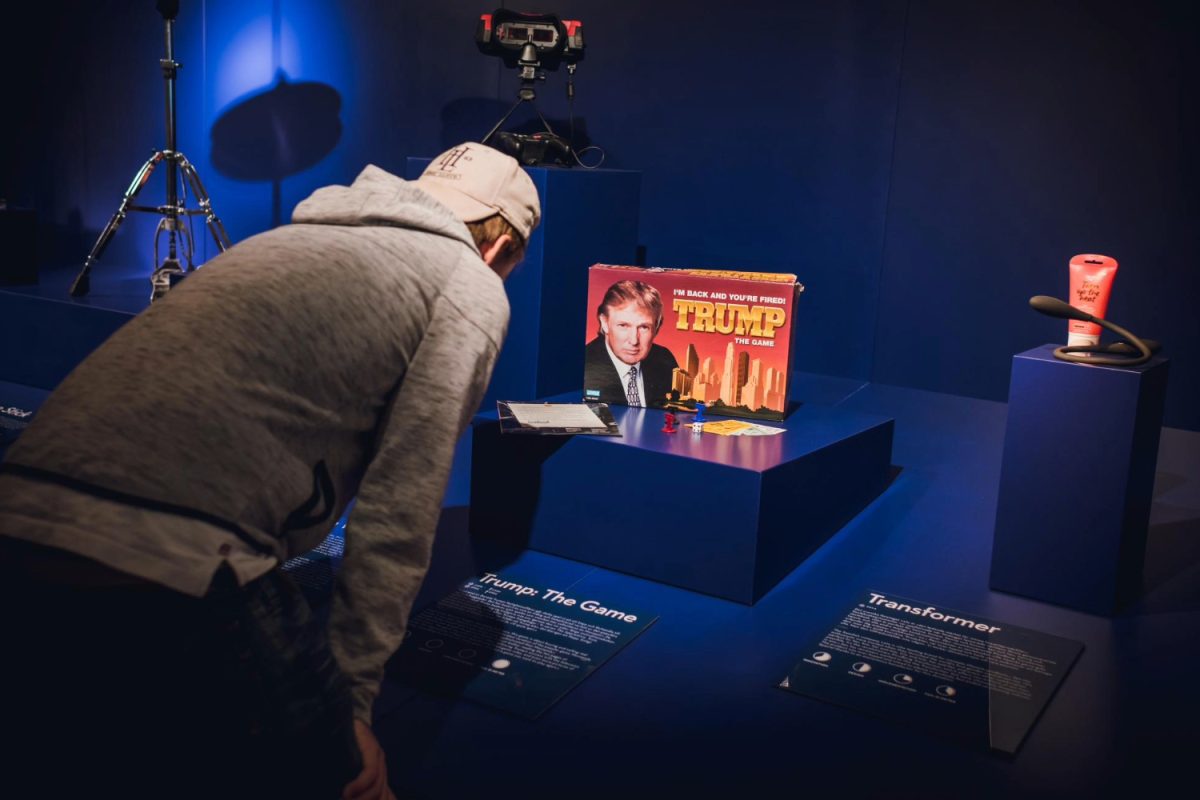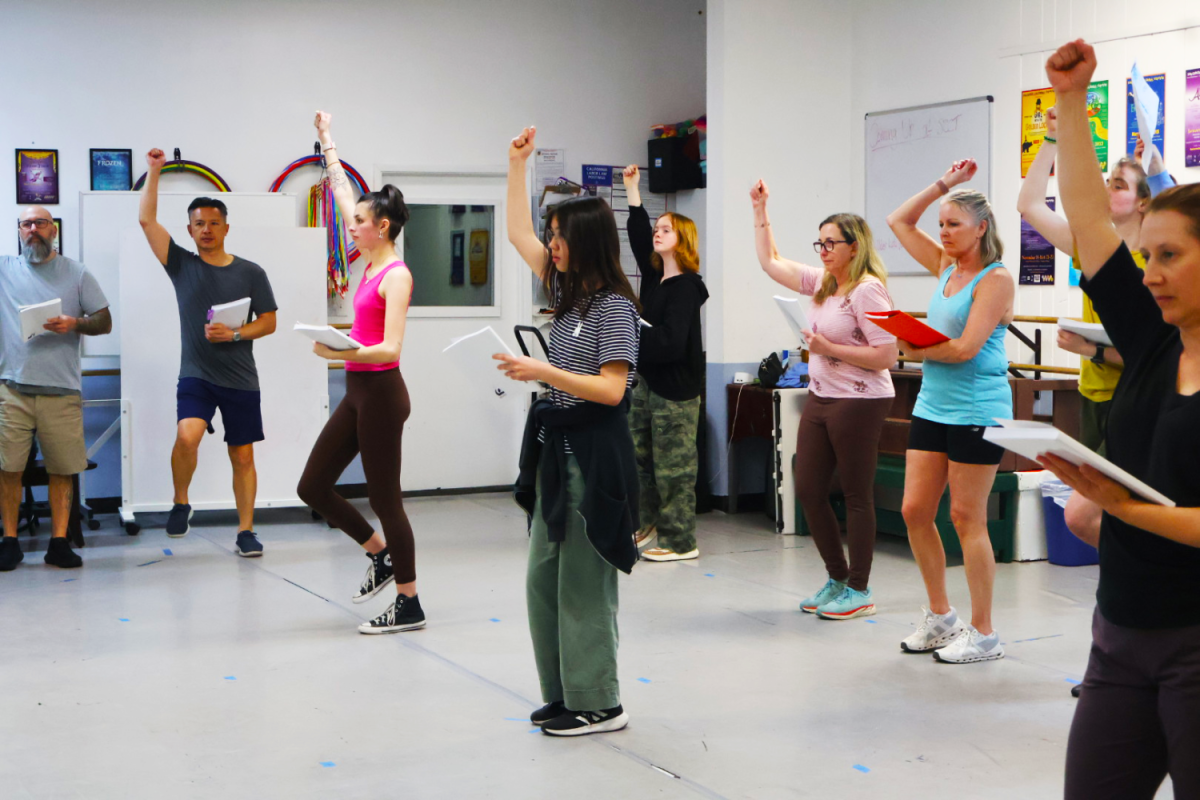Throughout the canvas of human history, tattoos have woven their way into the diverse threads of culture, leaving an indelible mark on both skin and self-expression.
Tattoos are more than just ink on the skin. They illustrate one’s stories, emotions, beliefs, and individuality. Each design becomes a testament to one’s life and a visual representation of who they are.
The art of tattooing is not a recent phenomenon. It is one of the oldest known art forms, supported by evidence indicating its existence for nearly 5,400 years.
For many cultures, tattoos serve diverse purposes, with some being used to protect from evil, declare love, show religious beliefs, and for various other reasons.
 The enduring passion for tattoos has stood the test of time and continues to hold significance in contemporary society. The recent popularity can be seen in a study conducted by the Pew Research Center, which found that 32% of Americans have at least one tattoo.
The enduring passion for tattoos has stood the test of time and continues to hold significance in contemporary society. The recent popularity can be seen in a study conducted by the Pew Research Center, which found that 32% of Americans have at least one tattoo.
This substantial percentage of tattoo enthusiasts is often attributed to the impartial essence of tattoos, which provide a platform for individuals from all walks of life to express their identity.
Growing up, Olivia Schumacher, a Carlmont sophomore, has aspired to get a tattoo. The idea hit her when she saw a family member with a sleeve of tattoos on their arm.
Schumacher’s desire for a tattoo stems from her fascination with using skin as a canvas for expressing meaning.
“I think getting a tattoo is kind of like decorating your body with things that mean something to you and contribute to who you are as a person,” Schumacher said.
Getting tattoos can serve as a visual diary of one’s individuality, a way for one to look back on and admire different things that were important to them throughout their lives.
“I think at some point when you get older and you look at your skin and you see all the tattoos that you’ve got, I think they definitely bring back memories or remind you of what was important to you when you were younger,” Schumacher said.
The idea that tattoos hold memories is upheld by Julia Schulman, an art teacher at Carlmont. She has been getting tattoos for over 20 years. Schulman adds how tattoos serve as an outlet, paying homage to different chapters and significant aspects of her life.
“My tattoos serve as commemorative markers for specific life experiences, allowing me to look at my tattoos and be reminded of different times in my life. The majority of these tattoos are deeply connected to my family and the significant moments I’ve gone through,” Schulman said.
Schulman describes the art of tattooing as a way for her to “decorate herself.” She finds a sense of renewal in each new tattoo, shaping her appearance and warding off monotony.
“They make me feel renewed. Every time I get a new tattoo, it’s like I renew what I look like a little bit, and it keeps me from getting bored and irritated with my appearance. It’s like a new addition to your life,” Schulman said.
However, Schulman also emphasizes that many of her tattoos are less serious, serving as a way for her to add beautiful pieces of artwork to her skin.
“To me, oftentimes getting tattoos feels as if I’m decorating myself, and it’s really awesome,” Schulman said.
Though tattoos can often be meaningful, they can also be a way for someone to adorn themselves and empower individuals to feel more confident in their skin.
Angela Whitt, owner of Whitt’s True Tattoo Shop in Knoxville, Tennessee, agrees with this notion.
“A lot of times, I see the empowerment that tattoos bring people. I’ve seen some people who have had breast cancer. They come in and get their scars tattooed over, and to see them look in the mirror at themselves for the first time and see this beautiful tattoo is quite powerful, actually. To even be around that, let alone to be a part of it,” Whitt said.
Whitt believes that tattoos can serve as a form of documentation, physically representing one’s life experiences.
“In my lifetime I have been privileged to see so many people document all the highs and lows, happy and sad, and ever-changing situations in their life on their skin,” Whitt said.
Whitt encourages people to explore the world of tattoos.
“I think that anybody, no matter your gender, your class, should at least go and check out their local tattoo shop and have a conversation with the individuals there,” Whitt said. “I think that would prompt many people to change their minds about different biases and how they feel about tattoos.”












